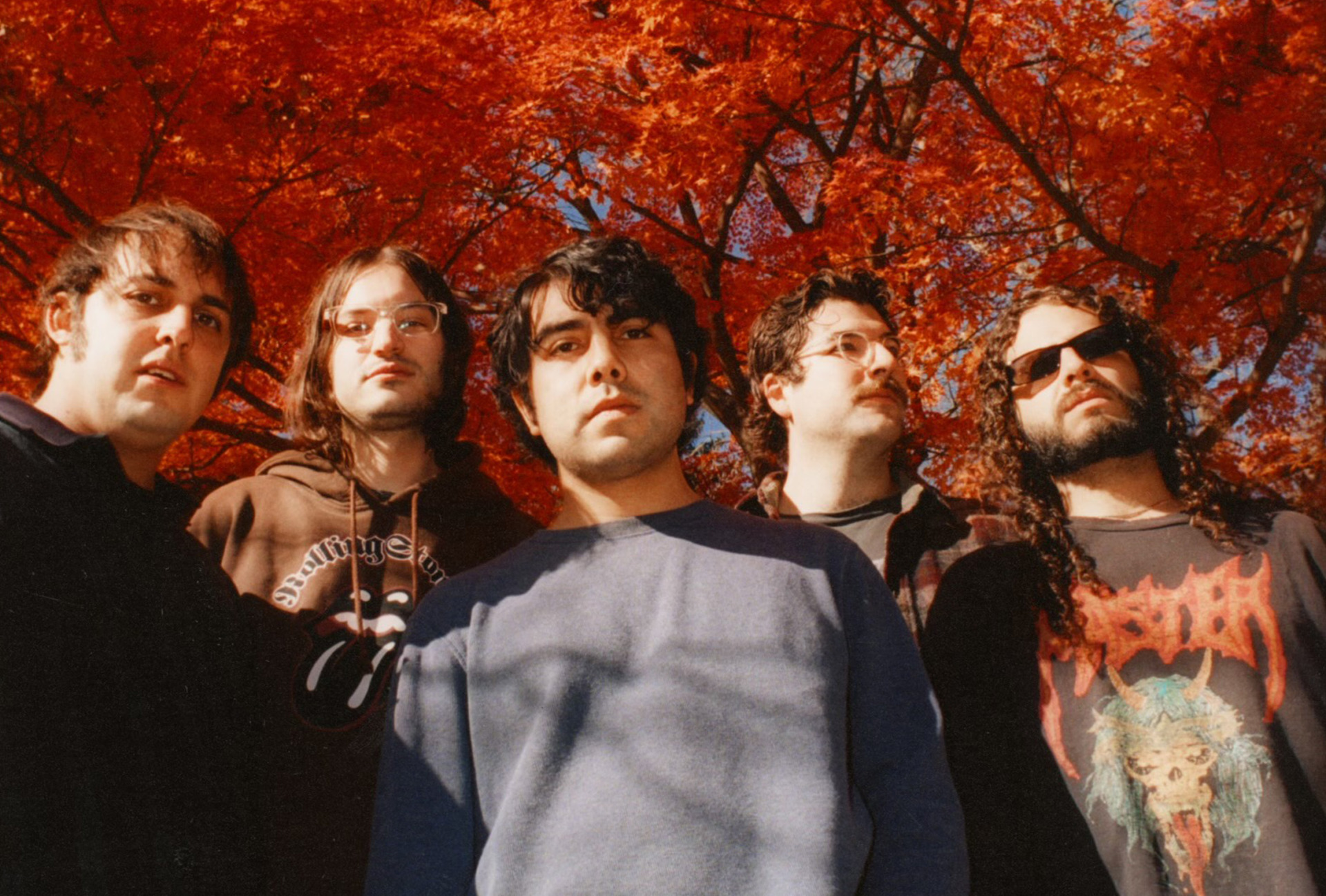Interview: Brown Jenkins
 |
Lacking the spontaneity that pulls insight from people, email interviews are usually inferior to actual ones. However, Moribund Records assured me that email was the way to interview Umesh, the man behind black/doom metal project Brown Jenkins. Boy, were they right. For my Brown Jenkins feature in the July 2008 issue of Decibel (Opeth cover), I used a fraction of what Umesh sent me. The dude just loves to type. Below are outtakes from the interview.
Forever FuneralsThe Ash Eaters
The first Google search result for “Brown Jenkins” leads to a coffee company. Does this piss you off?
No, but it does make me curious. I hope that the people who run that place connect things at some point in the future and send me some of their beans. I’m certainly not going to buy them. I suppose I should be angry that they took that domain before I could grab it, but try as I might I can?t seem to summon the outrage.
You’ve said that Angel Eyes is more “overtly Satanic” than Dagonite. Can you expound on that?
When I said that some time ago, I think that what I meant is that I felt a lot closer to whatever “dark” forces there are on this planet during the recording of this new album than I did during the recording of Dagonite – close enough to touch them at a few points. It wasn’t a great experience. I found out, for example, that I wasn’t as enamored of these forces as I once thought I was. Still, though, all of that found expression in the music.
What’s the the role of vocals in your music?
I have a love/hate relationship with vocals in metal music. I’m a guitarist, so I’ve always simply concentrated on the guitars in metal, going all the way back to the mid-’80’s, you know, when I first started listening to this stuff. I love the sound of the guitar, the power of its voice, the entire craft of playing it. I don’t need lyrics or vocals on top of that.
I usually don’t understand the lyrics of other people or what they want to say with them, what they need to say. It all seems so unnecessary, so many words, so many signs of?what? All people usually say, the message between the words, is, “We are a metal band, look at us, we want you to see us this way, this is the way we see ourselves.” That’s very boring to me. I don’t have an image to present, I don’t need people to see me being in a band or that I’m a musician or whatever. I don’t have an agenda. I don’t have any life lessons to impart or oppress people with. I just want to write music that makes me feel good, that creates a world that I can go inside, if only for an hour or two a day, and feel comfortable inside.
If Angel Eyes is overtly Satanic, yet it doesn’t have much vocals, does its Satanism come from the instruments?
Well, as you don’t have the lyrics, you’re not seeing the whole picture, but: yes. I probably only sing 1/3 of the lyrics anyway. The rest are just there to tell the story of the song, or whatever. If a musician is a Satanist, it means he/she is in eternal opposition to reality, to “normality”, to accepted and unquestioned beliefs. These psychological themes easily become musical themes, and then individual melodies, in themselves “themes.”
It is so easy to be an accepted, mainstream black metal musician these days. Essentially a blueprint or guidebook has been written for any willing adherent if he just pays attention, by all the scene manipulations and historical precedents already set down. It is so easy to have the right look, to say the right things, to rebel in the accepted way, to impress people in the right way, to write the required melodies, to say the “right” things in interviews, etc. It’s a system, and it can be worked by any skilled manipulator. The Satanist, even now, is the person who strives for individual expression by forcing what is real and true in his own experience outside himself, expressing his own life, not through clichés, but through his own language.
What does Satanism mean to you?
Blood power, reality power. The right of the individual to willfully impose his internal world upon reality, and then have it take its rightful place not only in his life, in his chain and system of meaning, but in that of the others around him. In my mind, it is a path that is, as its most simple, a series of abstractions and lessons learned from Satan’s opposition to a fascist “one” or monotheistic, mono-created reality, to the internal life of the individual, the creation and maintenance, or acceptance of the universe of billions of different realities. It is freedom, not slavery underneath another master. Ultimately, Satanism is beautiful because it is a cause that recognizes, metaphorically or not, our true benefactor, our most precious gift: reason. It is reason that can crush religion, and it is reason that can save us as a species, not monotheistic inanity.
Was it hard to get signed with a fairly vocal-free project?
I don’t think so. We did two demos relatively quickly in 2007, got a lot of interest, and then signed to Moribund almost immediately. I don’t know why that happened or how; I’ve been in contact with Odin [Thompson, label head] since about 1998, but, eh, whatever. I’m glad he took notice. We had offers from other labels. I was ready to do some music that would have been cool for other people to listen to and which I thought other people would probably like eventually, so it wasn’t a surprise Jenkins got signed so quickly. Not for me, anyway, but I’m totally jaded. No one ever told me, “You need more vocals in this, we need clichéd songs, we need to sell this stuff.” You know how the underground works. It might be totally mapped out and commodified, but there are still people out there who can get behind weird stuff. There is still a lot of room for innovation.
Your metal reference points tend to be older. How old are you? Do you see a difference between metal made today and metal from when you grew up?
I’m 34. I don’t know what that tells you. I started listening to metal in about ’86. I bought Metallica’s Master of Puppets and Slayer’s Reign in Blood and that was pretty much it for me. My life was changed forever. I should have known better. Had I discovered something more civilized, like jazz or whatever, I probably would have been an astrophysicist by now. Dark calls to dark, right? One can’t deny these things; one seeks out the keys to one’s nature.
There are a number of differences between metal made today and metal made 20 years ago, but they’ve been well documented on a thousand Internet message boards. The main difference: the weight of history. While Slayer had Priest always in their sights and in their minds, any band that begins today has to contend with Slayer, etc. This is the supposedly random factor that is at the heart of all of metal, and which changes everything: influence. Metal now has enough of a history that people can wax nostalgic and they don’t always sound crazy. All of that weight of history creates its own pressure, its own power and force that must be spun, reckoned with, wittily tested and dealt with.
Your riffs owe much to Godflesh. Is this an accurate statement?
Honestly, I didn’t know how influential Godflesh was on my musical development until I started to write and record stuff. Then, all of a sudden, it came o
ut?very obviously. What’s strange is that they weren’t even a favorite band of mine all the time I was growing up. I would always listen to them, of course, and buy their albums, check in on what they were doing, how they were developing, but I never thought of them as a favorite. Now I know better. They were an amazing band and Broadrick is a fantastic guitarist, one of my favorites, and yes, you can hear his influence all throughout my playing. Listening to my riffs these days, I think you could say that he and Piggy from Voivod were the two guitarists that my subconscious actually paid attention to. Well, and also Iommi. I guess I should move to Birmingham and embrace my heritage? Weird.
Describe the perfect Brown Jenkins sound.
Two guitars, one drum set: snare, kick, hi-hat. The two guitarists are expertly polished and can play anything, from Robert Johnson to Steely Dan to early Floyd to Neu! to Burzum and Bethlehem, and the drummer never lets an errant word slip. Occasionally one of the guitarists growls something. Worlds slip away, right? That’s the purpose of music: escape.
MySpace
Older Recordings
Moribund Records











